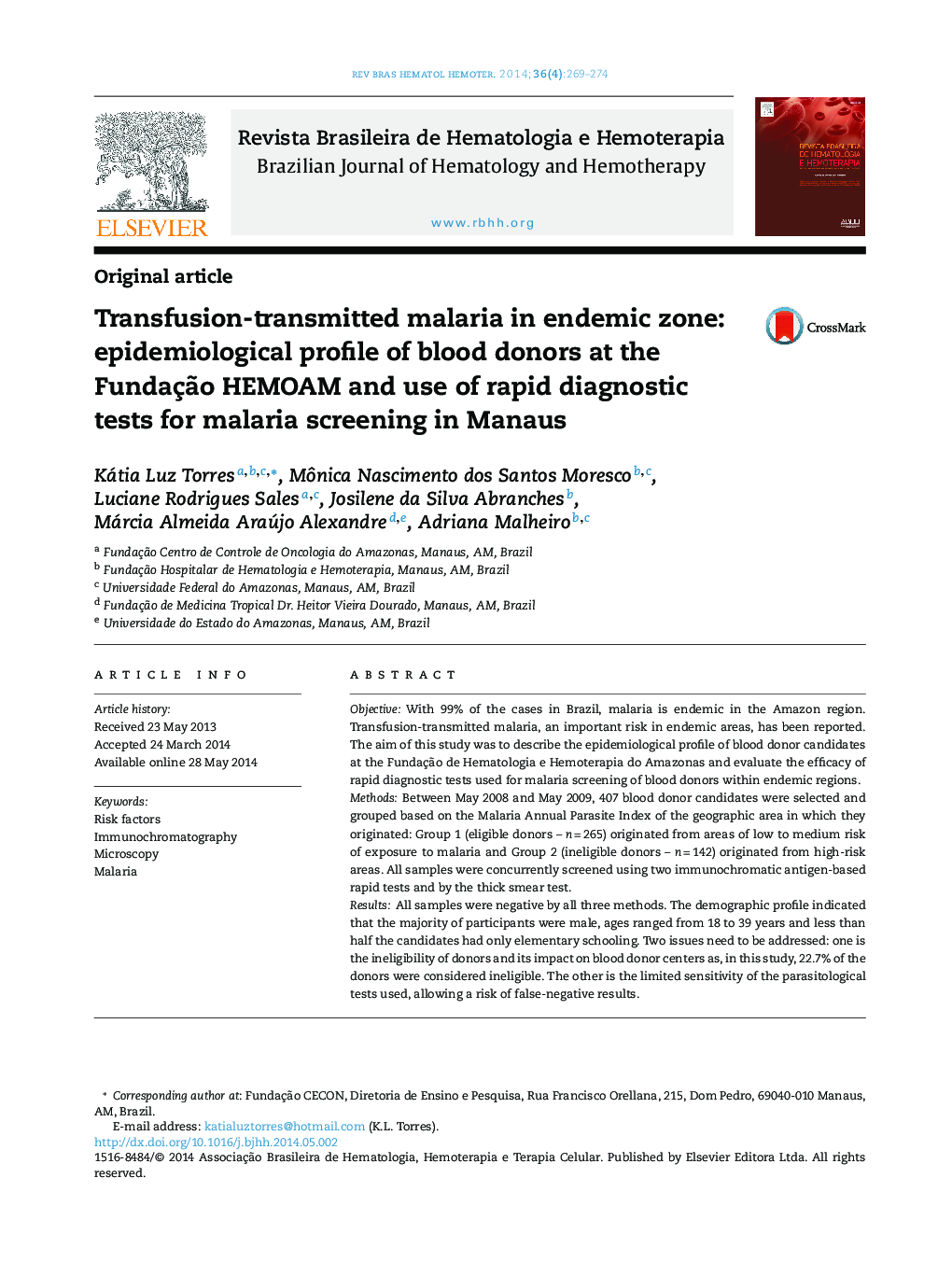| Article ID | Journal | Published Year | Pages | File Type |
|---|---|---|---|---|
| 3333126 | Revista Brasileira de Hematologia e Hemoterapia | 2014 | 6 Pages |
ObjectiveWith 99% of the cases in Brazil, malaria is endemic in the Amazon region. Transfusion-transmitted malaria, an important risk in endemic areas, has been reported. The aim of this study was to describe the epidemiological profile of blood donor candidates at the Fundação de Hematologia e Hemoterapia do Amazonas and evaluate the efficacy of rapid diagnostic tests used for malaria screening of blood donors within endemic regions.MethodsBetween May 2008 and May 2009, 407 blood donor candidates were selected and grouped based on the Malaria Annual Parasite Index of the geographic area in which they originated: Group 1 (eligible donors – n = 265) originated from areas of low to medium risk of exposure to malaria and Group 2 (ineligible donors – n = 142) originated from high-risk areas. All samples were concurrently screened using two immunochromatic antigen-based rapid tests and by the thick smear test.ResultsAll samples were negative by all three methods. The demographic profile indicated that the majority of participants were male, ages ranged from 18 to 39 years and less than half the candidates had only elementary schooling. Two issues need to be addressed: one is the ineligibility of donors and its impact on blood donor centers as, in this study, 22.7% of the donors were considered ineligible. The other is the limited sensitivity of the parasitological tests used, allowing a risk of false-negative results.ConclusionNew methods are needed to ensure transfusion safety without rejecting potential donors, which would ensure safe transfusion without harming the blood supply.
